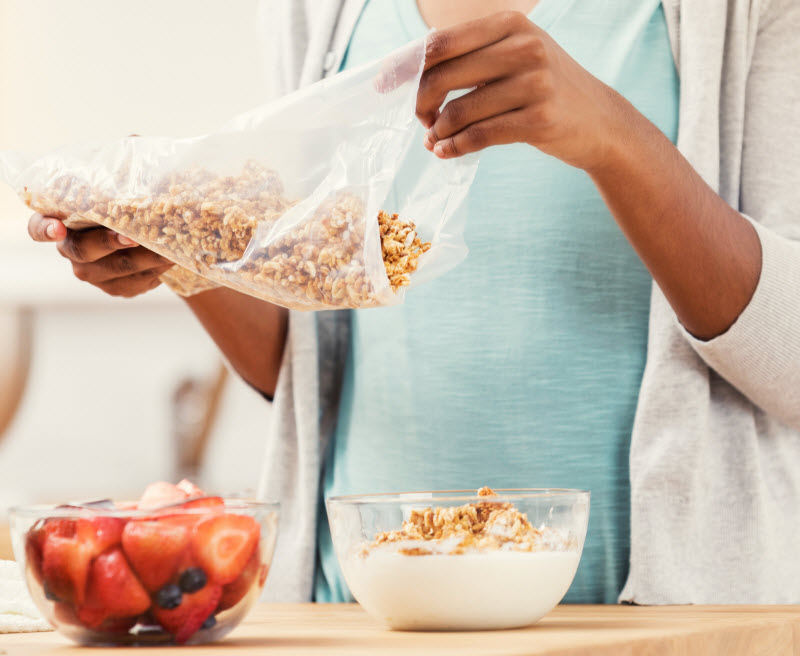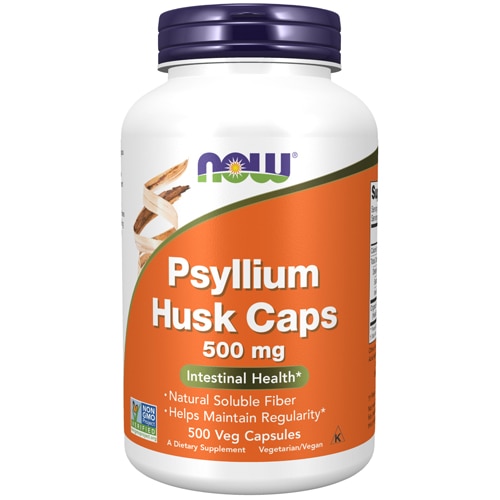Hear “fiber” and chances are you’ll think of bark-colored cereal and those prunes your grandmother insisted you eat after breakfast. When it comes to wellness, trends suggest that resveratrol is far more exotic and turmeric far more alluring. But
fiber—humble, quiet and necessary—is making a comeback in health circles.

For a good reason, too: Fiber is a key component to an optimal-working body, supplying you with everything from satiation to protection against disease—all of which prompted the World Health Organization to change its guidelines on
how much fiber you should consume (that’d be 25-30 grams per day) and inspiring nutritionists to hammer home its many benefits. Here are five reasons why you should get on the fiber bandwagon – and five simple ways to get more of it in your diet.
1. Fiber helps detoxify your body
A recap on what you may already know: Fiber is classified into two different types, insoluble and soluble. Insoluble fiber—found in vegetables and whole grains, for example—“adds bulk to the stool and appears to help food pass more quickly through the stomach and intestines,” Medline Plus puts it. Soluble fiber—found in
oat bran,
nuts,
seeds and
beans—attracts water and turns into a gel-like substance after consumption, which slows digestion.
It’s not only water that it draws, either: It can also soak up potentially deleterious compounds, like unhealthy fats and excess estrogen, before they’re absorbed into your body. Meanwhile, insoluble fiber can accelerate the process of moving harmful compounds out of your system—far faster (and more efficiently) than a
juice cleanse.
Find it in: Avocado. The green, creamy gems contain not only 6.7 grams of fiber but they’re also low in carbs and high in potassium, magnesium and vitamin C. Mash one on a slice of
sunflower seed bread for an additional 6 grams of fiber.
2. …and may help you lose or maintain weight
Think back to the lesson above, about how soluble fiber slows digestion. This shouldn’t be thought of as a bad thing, but as a huge plus: A
high-fiber snack or meal will keep you feeling full (and satisfied) longer than a carb-rich entry because it takes so long to move through you.
Insoluble fiber, meanwhile, literally fills up space in your stomach and intestines, which may cut—or diminish—your cravings and lead to an overall lower caloric intake. What’s more, the
American Journal of Clinical Nutrition reports that women who substituted high-fiber grains (such as
barley and quinoa) for refined ones—such as white rice—had a higher resting metabolic rate. Translation? They burned more calories throughout the day.
Find it in: Kidney beans. 1/2 cup of the dark red lentils contain a whopping 8.2 grams of fiber. Toss a handful on top of your salad, add a cup to your spaghetti sauce, or use them to create a delicious, one-dish meal: In a slow-cooker, combine 2 cans of organic
kidney beans with 1 can of diced tomatoes, 1 medium, chopped sweet pepper, ½ large onion, ½ cup of organic ketchup, ¼ cup brown sugar (or substitute with 1/2 tsp monk fruit sweetener for a low cal sugar-free option), and ½ teaspoon salt. Cover, cook on low for 2-4 hours, and savor.
3. Fiber boosts healthy gut bacteria
Mounting research shows that a healthy
gut microbiome is key to a disease-free, energetic and happy brain and body.
Include more fiber in your diet and you may be well on your way, as the good bugs in your belly flourish on fiber (indeed, fiber operates as a
prebiotic for your microbes). Take it from the author of
Cultured: How Ancient Foods Can Feed Our Microbiome, Katherine Harmon Courage: “When our microbes don’t get enough fiber, they can start eating away the mucus lining protecting this thin layer, and sometimes the lining can break which can lead, literally, to leaky gut syndrome, which is associated with many poor health outcomes.”
Find it in: Sweet potatoes. A medium-sized,
baked sweet potato—with the peel—contains 4.8 of fiber. Eat it plain or go Mediterranean and crown it with chives.
4. …and naturally supports heart health
Fiber and cardiovascular wellness have been linked since the 1970s—and research has continued pouring in since then, showing, time and again, that fiber can reduce your risk of heart disease. Indeed, according to a review of 22 studies published by the
British Medical Journal, your risk of heart disease drops by 9 percent for every 7 grams of fiber you eat daily. This is due in part to fiber’s ability to assimilate extra cholesterol and get it out of your systems before it jams up your arteries.
Find it in: Yep, those
prunes from your childhood. Six of the sweet, dried fruits contain 12 grams of fiber, or nearly half of what you need per day. Add prunes to your morning yogurt, pop a few on top of your
oatmeal, or just eat a handful of them as an afternoon snack.
5. Fiber may boost your energy
Down a cup of coffee and a sugar-rich Cliff bar and sure, you’ll have enough rev to power through a morning workout. But your crash will be as low as your high, leaving you feeling grumpy, weak and fatigued.
Turn to fiber instead. Its ability to slow digestion also slows the release of glucose in your bloodstream, meaning you won’t have a crazy energy spike and collapse. Rather, you’ll feel energetic, yes, but also balanced and steady.
Find it in: Artichokes. Richer in fiber than any other vegetable, an artichoke packs 10.3 grams of the good stuff (per one medium-sized artichoke). Trim and bake with lemon juice, sea salt, olive oil and black pepper to taste. Fuddy-duddy like the fiber of your youth? Hardly.
 For a good reason, too: Fiber is a key component to an optimal-working body, supplying you with everything from satiation to protection against disease—all of which prompted the World Health Organization to change its guidelines on how much fiber you should consume (that’d be 25-30 grams per day) and inspiring nutritionists to hammer home its many benefits. Here are five reasons why you should get on the fiber bandwagon – and five simple ways to get more of it in your diet.
For a good reason, too: Fiber is a key component to an optimal-working body, supplying you with everything from satiation to protection against disease—all of which prompted the World Health Organization to change its guidelines on how much fiber you should consume (that’d be 25-30 grams per day) and inspiring nutritionists to hammer home its many benefits. Here are five reasons why you should get on the fiber bandwagon – and five simple ways to get more of it in your diet.



